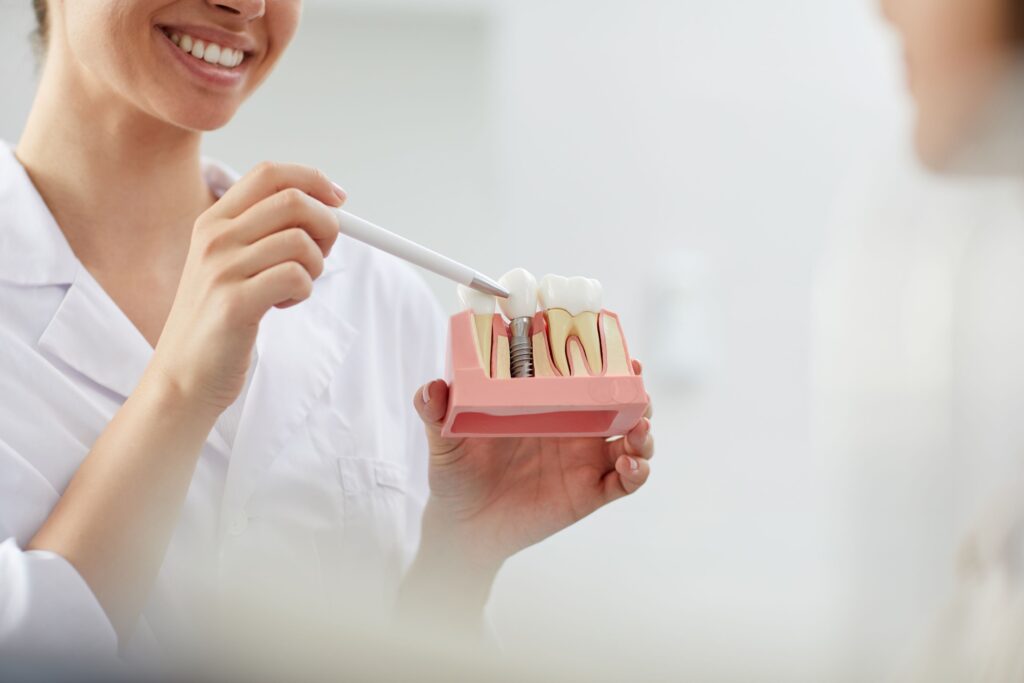
Many experts consider dental implants the ideal way to replace missing teeth because of their unique placement in your jawbone. Unlike alternatives, like dentures or dental bridges, they can function as sturdy standalone structures with added strength and stability.
However, that doesn’t mean they’re invincible. This procedure has an incredibly high success rate of more than 90%, but there’s still a chance your new tooth could fail. Continue reading to learn about 3 things you can do to keep your restoration in great shape!
Tip #1: Increase Your Vitamin D
Vitamin D deficiency can contribute to dental implant failure because it helps your body absorb calcium and phosphorus from food to build and maintain healthy teeth and bones. If you don’t have enough, you could develop brittle bones prone to injury.
This is problematic for your restoration because it includes a titanium rod that’s embedded in your jawbone. It takes three to six months to heal because your jaw must create enough new bone growth to fuse with the metal in an osseointegration process. A lack of vitamin D can prevent you from successfully completing this stage of recovery.
Fortunately, you can easily boost your levels by taking a 15- to 20-minute walk on a bright day during peak sunlight because your body produces vitamin D when exposed to ultraviolet rays. You can also consume it in fatty fish, egg yolks, and fortified dairy, cereal, or juice products.
Tip #2: Implement a Routine
The leading cause of failure is a pervasive form of gum disease called peri-implantitis, which occurs when bacteria in your mouth penetrate the surgical site to erode the connective and bone tissues holding your restoration in place.
You can prevent it from developing by implementing a twice-daily dental hygiene routine after your procedure. You should brush and floss morning and night to clear away germs, leftover food, and other debris that can cause an infection. You should also see your dentist every six months for a routine checkup and cleaning.
Tip #3: Don’t Smoke
Smoking cigarettes or vapes or using other tobacco products can directly contribute to implant failure for a couple of reasons. Firstly, they contain nicotine, which is a vasoconstrictor that limits your blood oxygen and flow. That means your body can’t deliver essential nutrients to your teeth and gums to heal after surgery. Not only that, but it also suppresses your immune system, increasing your vulnerability to infection or gum disease. As a result, your dentist will likely ask that you quit at least two weeks before your implant procedure to increase the chances of success.
Your dentist will provide additional post-op instructions to help you heal effectively, and following them in detail is the best way to maintain your recently restored smile!
About the Practice
Patients at Harper Dental benefit from two dentists with more than 40 years of combined experience helping people build and maintain happy, healthy teeth and gums. Dr. Cooper and Dr. Harper collaborate to provide a complete menu of services under one roof, including placing and restoring dental implants. They take the time to get to know your goals and concerns, then tailor treatment plans to meet your unique needs. Then, they combine a caring approach with state-of-the-art technology to provide accurate results meant to last. You can request an appointment on the website or call (479) 452-1638.
